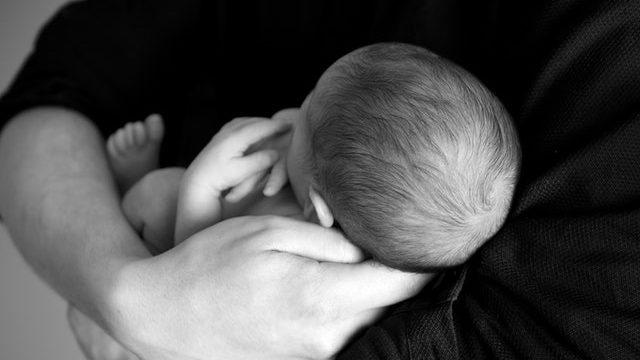Losing a wanted pregnancy can be very distressing. It is worse when it is the first pregnancy and if conceived after infertility treatment.
Early miscarriage means losing the pregnancy within the first three months.
Symptoms of Early Miscarriage
Vaginal bleeding is the commonest symptom and may be accompanied by pain in lower back and abdomen. Sometimes there are no symptoms and the miscarriage is discovered on routine sonography when the fetal heartbeat is absent.
In the first 3 months, 20 percent of women experience vaginal bleeding and about 15 percent eventually have a miscarriage. The risk of miscarriage increases with age –It is 20% at the age of 30, but at 40 the risk is 50%.
Causes of Early Miscarriage
It is very difficult to identify a cause for the miscarriage in most cases.
There can be 3 possible cause -there is an abnormality with the genes and chromosomes of the foetus, or mother has health issues such as diabetes or there is some abnormality with the development of the placenta
Various factors such as smoking, addiction to drugs, alcohol, obesity and medical issues such as diabetes, chronic renal disease, autoimmune disease, can cause miscarriages.
Stress, Travel, Sex and certain foods such as papaya are commonly blamed for miscarriage but that is a myth.
Diagnosis of Early Miscarriage
If one is pregnant and has pain and bleeding, then one must report to the gynecologist. The first step is an internal examination.
If the neck of the womb is open then the miscarriage is almost certain. In case the neck of the womb is not open then it is possible that this is threatened miscarriage and with supportive treatment, the pregnancy may be salvaged.
The next important step is Ultrasound and it is the most definitive in diagnosis. It will confirm the size location and viability of the pregnancy. In case the size is less than 6 weeks then serial ultrasound may be required to confirm the viability.
The ultrasound may be done transabdominal or transvaginal. Either way, it does not increase the chance of the miscarriage.
In some cases, a blood test for the pregnancy i.e. serum beta HCG may be required to confirm viability and location.
Miscarriage Management
The management depends on the findings in the ultrasound.
Ultrasound Shows
- An empty cavity –the miscarriage is complete. (there is a possibility of ectopic pregnancy and this is discussed on another page)
- Remnants of the pregnancy – then one can wait for nature to take its own course. In case of persistent and heavy bleeding, a curettage can be done.
- The entire pregnancy with an absent heartbeat – medicines may be used to help evacuate the uterus but in most cases, a dilatation and curettage may be required.
- The pregnancy sac is intact and the fetus has a heartbeat – in this case, supportive treatment is given in the form of oral tablets, vaginal suppositories, and some hormonal injections. The treatment will vary from patient to patient and is difficult to generalize. Review scans may be required to assess the success of the treatment.
Recovery and Follow up
- In case the pregnancy is salvaged then supportive care and antenatal care is continued.
- In case the miscarriage is confirmed, emotional support is of paramount importance.
- Subsequently, investigations may be done to determine the cause of miscarriage.
- The basic test for thyroid and diabetes is commonly done after the first miscarriage. Advanced testing is recommended only in the case of repeated miscarriage.
- The patient can resume work as soon as she feels well to do so. The couple can start having sex as soon as they are ready to do so and the bleeding and the pain has resolved.
- They can plan a pregnancy as soon as they are physically and emotionally ready. It is important to treat any obvious deficiencies before planning the next pregnancy. It is a myth that one needs to take a break for 6 months after a miscarriage.
- Miscarriages are common and most patients will have a spontaneous normal pregnancy and delivery. A very small percentage of women have a repeat miscarriage. They need special investigations and treatment.










































































































